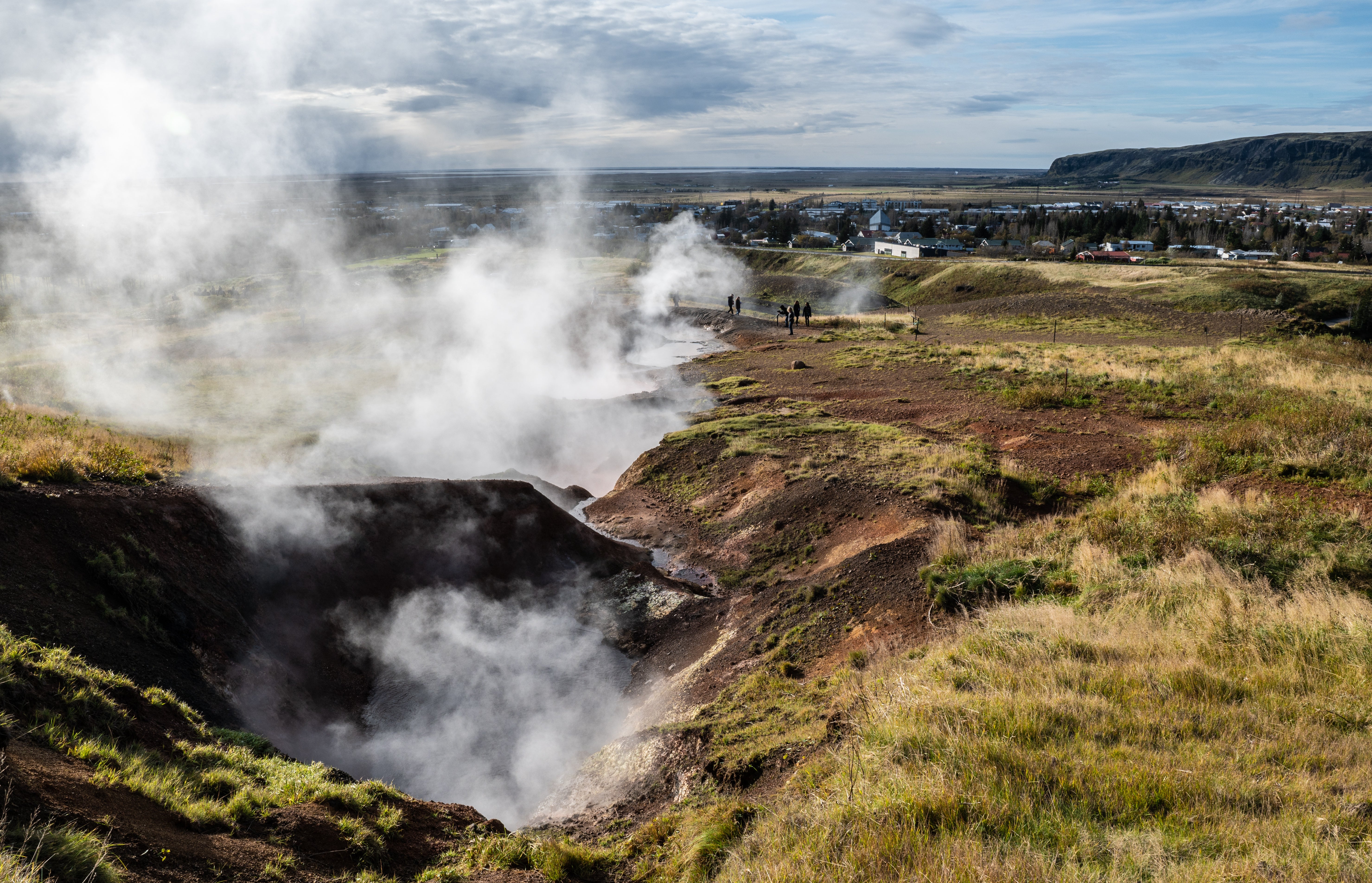Geothermal energy: Can the UK learn from Iceland?
Around 85 per cent of homes in Iceland are heated by geothermal energy and the country aims to be completely free of fossil fuels by 2050. Climate correspondent Daisy Dunne reports from Reykjavík


Your support helps us to tell the story
From reproductive rights to climate change to Big Tech, The Independent is on the ground when the story is developing. Whether it's investigating the financials of Elon Musk's pro-Trump PAC or producing our latest documentary, 'The A Word', which shines a light on the American women fighting for reproductive rights, we know how important it is to parse out the facts from the messaging.
At such a critical moment in US history, we need reporters on the ground. Your donation allows us to keep sending journalists to speak to both sides of the story.
The Independent is trusted by Americans across the entire political spectrum. And unlike many other quality news outlets, we choose not to lock Americans out of our reporting and analysis with paywalls. We believe quality journalism should be available to everyone, paid for by those who can afford it.
Your support makes all the difference.Icelanders are fond of saying that they are the only country on Earth to get their heat from the ground rather than the sun.
A closer look at the country’s energy mix offers support to the claim.
The volcanic country derived 65 per cent of its primary energy from geothermal sources in 2016. Around 85 per cent of all Icelandic homes are heated by geothermal energy. The country’s electricity comes almost exclusively from low-carbon hydropower and geothermal sources.
Geothermal energy also heats the country’s many public swimming pools and supports the production of temperate crops such as tomatoes and cucumbers in specially heated greenhouses.
It has plans to go further. Iceland wants to achieve “carbon neutrality” before 2040 and be completely free of fossil fuels by 2050. This will involve the difficult task of tackling emissions in its still largely polluting transport and fishing sectors.
Iceland’s resolve to take action on the climate crisis is partially driven by the effects already playing out across the island, locals say. In 2019, Iceland held a funeral for the first glacier to be lost to the climate crisis.
But the push towards developing its geothermal resources came as early as the 1970s. It was precipitated by a global oil crisis, in which the world market price for crude oil rose by 70 per cent.
The price hike prompted the country, which at the time sourced around half of its heat from oil, to look to developing its domestic energy resources, says Árni Magnússon, CEO of Isor, an Icelandic research institute specialising in geothermal sciences.
“It took us a while longer to realise we had something we could share with the world,” he tells The Independent.
The UK is not actively volcanic and does not have geothermal reserves on the same scale as Iceland. But there are hotspots across the country with potential for developing geothermal energy. This includes Cornwall, where the country’s first geothermal power plant was commissioned earlier this year.

The biggest lesson the UK could learn from Iceland would be to think differently about how it heats its homes, says Mr Magnússon.
Britain’s homes, which are largely reliant on gas boilers, currently account for around a fifth of the country’s total CO2 emissions.
The UK will need to rapidly scale up its deployment of low-carbon alternatives to gas boilers, such as heat pumps, if it is to meet its legal target of net-zero emissions by 2050, according to the country’s climate advisers.
Heat pumps work by absorbing warmth from an outside source, such as the ground, before transferring it into the home. They require just a third of the power used by electric heaters and use far less energy than oil and gas heating. In September, it was revealed that the UK ranks bottom in Europe for sales of home heat pumps.
Another lesson for the UK could be to focus on the sources of energy that it has in abundance, says Hildigunnur Thorsteinsson, managing director for research and innovation at Reykjavik Energy.
“What we’ve learnt is that it pays off using your local resources,” she tells The Independent.
The UK ranks near the top globally for potential to produce renewable power from wind. The Independent last week reported that growth in renewable power capacity fell to its lowest level in 10 years in 2020.
Daisy’s travel costs were covered by Business Iceland

Join our commenting forum
Join thought-provoking conversations, follow other Independent readers and see their replies
Comments